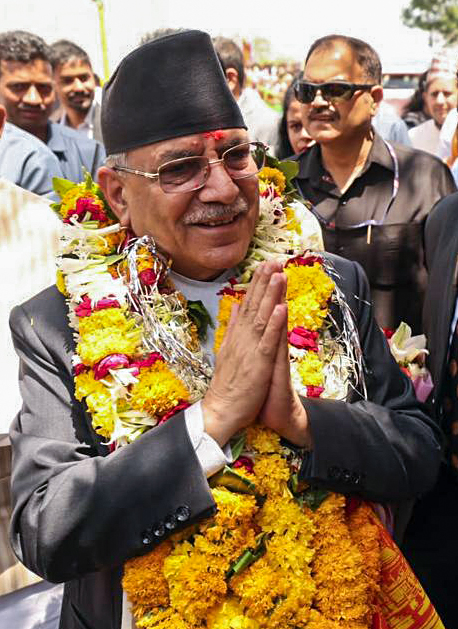


In what augurs well for relations between Kathmandu and New Delhi, Nepalese Prime Minister Pushpa Kamal Dahal Prachanda during his visit to India signalled that he would not allow “the irritants” of the past to come in the process of deepening of ties between the two neighbours. Moreover, the Nepalese leader’s statement about Prime Minister Narendra Modi also speaks volumes about how Kathmandu is keen to take the ties with New Delhi to a new high. Prachanda on Saturday said that meeting his counterpart Narendra Modi was the most significant aspect of his four-day visit to India. In fact, Prachanda was apparently impressed by PM Modi’s announcement in which the Indian leader had said that he wants to take ties with Nepal to Himalayan heights. PM Modi was high on action as well. PM Modi and Prachanda signed seven agreements and launched six projects, including railway services to further enhance bilateral ties. What the Nepalese side was happy to note was that India fulfils its commitment to Nepal or any other country for that matter. India does not believe in simply making hollow promises. This is not the case with China which keeps on promising projects and financial aids to Kathmandu but most of the projects are lying incomplete. Prachanda, who visited India from 31 May to 3 June, must have noted this basic difference between India and China. “We discussed matters relating to further deepening the centuries-old close relations existing between Nepal and India in the days ahead,” Prachanda said upon his arrival at the Tribhuvan International Airport in Nepal. He also said that the ties between the two countries have entered a new phase. The observations made by Prachanda bear testimony to the fact that the Nepalese Prime Minister has returned from India fully satisfied. Therefore, he will work on bolstering relations in diverse areas in a more robust and planned way. He has amply indicated that the irritants of the past will not be allowed to overshadow the efforts to ramp up ties between the two countries. The indications are clear that both sides are set to add further momentum to bilateral partnership. This is being viewed as a positive development for India in the light of the impression that Nepal was earlier seen as being favourable to China. Many foreign policy analysts were of the view that Nepal under Prachanda would be more inclined towards China. But Prachanda’s high opinion about PM Modi and his religious engagements in India like the visit to Mahakal Mandir in Ujjain show that the Nepalese Prime Minister is more focused on expanding relations with India. Indications are such that the new regime in Kathmandu is unlikely to get closer to Beijing any more. In another significant development, the Prachanda government is said to have put on hold the purchase of military equipment from China. It has also vowed to expedite the investigation of missing persons and Maoist excesses during the Civil War. Nepal is no doubt facing political instability and economic crisis. Prachanda knows that he cannot overcome the present crisis without taking India into confidence. He is also aware that with a strong leadership like Prime Minister Modi leading the government in New Delhi, this is the right time to ensure that the ties between India and Nepal get much stronger. He visited Lord Shiva temples in Indore and Ujjain not only as an attempt to show respect to the sentiments of Nepali Hindus. He did so as part of his religious and temple diplomacy to win the confidence and affection of Indians in a bid to achieve the final goal of winning trust of the Modi government. Prachanda is also aware of the continuing role that India’s goodwill plays in Nepali politics. It surprised one and all not only in Nepal but also in India that Dahal did an elaborate puja at the Mahakaleshwar temple in Ujjain. He offered the deity a 108-rudraksha bead thread, clad in distinctly religious attire. Everybody knows that Dahal was a “revolutionary” whose insurgency saw many incidents of temples being vandalised and those observing rituals being killed. He avoided visiting any temple, including the Pashupatinath temple in Nepal. Diplomatic analysts say that Dahal’s religiosity in India can be attributed to the global popularity of the Modi factor. The Nepalese leader has realised that his political success in Nepal will be difficult without addressing the Modi factor.